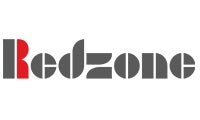
Our companions, our customers, our community, and our company – these are the ‘4 Cs’ upon which Companion Baking has built its business since 1993. Founded in St Louis, Missouri, US, Companion continues to operate locally, supplying yeasted goods to over 200 partners around the area, as well as serving fresh bread and sandwiches out of their café in the city. That’s a lot of dough – but how has Companion managed to keep up with demand given the labour shortage crisis which threatens to crunch the F&B industry?
After founding the company at just 24 years of age, Josh Allen is now the president of Companion Baking. He says the key to his company’s success is “[that] we’re big supporters and big fans of our customers. We try to assist them in growing their business. We’re good listeners, and [when] we react we’re nimble, and we’re flexible, primarily because we’re small and scrappy.”
As for the labour crisis, Allen admits, “we haven’t quite solved that yet. The bigger issue for us is retention. We significantly increased our labour costs through the pandemic, and we are [offering] increased compensation packages, but it doesn’t seem to be an issue of money. It seems to be an issue of commitment – the world seems to be so hard right now.”
Consolidating company culture
Faced with such seemingly intangible problems, Allen decided that the best way to consolidate his workforce was transforming the company culture. He says Companion needed to become a place where people wanted to work.

“We’ve been running 60-80% turnover for the last 12 to 18 months,” he says. “We know anecdotally that some folks are dealing with 200-400% turnover. In some respects, I want to pat ourselves on the back with the 60-80, but it’s hard to train folk; it’s hard to keep trainers motivated when 60% of the folks we bring in [might not] be here in seven to 10 days. You can think, ‘Why am I investing my time and my energy in those folks?’ [It] becomes a vicious cycle.”
To help tackle the company’s labour issues, Allen brought in Redzone, a digitally connected workforce solution that facilitates communication between employees, as well as provides a system for manufacturing businesses of all sizes to train their staff.

Allen wanted to “make a more inclusive environment and to do a better job of educating [employees].” Through Redzone’s Learning solution’s onboarding videos and communication, he is trying to better instruct new staff so that they know what they’re dealing with, thus creating a more comfortable environment overall.
“Obviously, we do the videos for training about specific pieces of equipment and how to make this kind of bread, but we’re also starting to add videos on how to work the trash compactor, how to make coffee in the break room – the things that in a lot of instances, you might have believed people understood, or you showed them once and everything should be fine,” he notes. “But maybe they didn’t get it, maybe it’s an overwhelming volume of information in the first couple of weeks. To be able to have that resource and learn on your own, it just makes you more comfortable.”
Allen also believes that “everybody comes to work wanting to do a great job.” Redzone, he thinks, has enabled staff to learn more about bread production and what a good product looks like, meaning they continue to take pride in their work.
Intuitive learning
However, the onboarding process still requires an “awful lot of information”. Redzone has helped new workers to feel less overwhelmed when faced with the technology that Companion uses to produce its dough. The bakery is semi-automated: everything from packing to kneading involves some sort of machine. Where Redzone comes in handy, Allen says, is that it provides employees with resources they can use “to get a little bit more insight [and] understanding at their own speed.”
The videos, he says, are absorbable “in a manner that folks are accustomed to. Everybody watches TikTok and YouTube, so if we present these things in the same manner, it’s more absorbable.”
Allen’s 24-year-old daughter works part-time at the company and puts her knowledge of social media to good use, helping to create snappy videos that clearly convey the information staff need to know without it becoming dry. Redzone’s communication software, where employees can interact with each other using emojis, high-fives, and other features of text and messaging, Allen also thinks “has a lot of value.”
Moreover, Redzone carries out analyses of manufacturing operations. Employees can set production targets, then dial back and consider why they were or weren’t being met. Any challenges they can then easily report back to management through the communication software.

“I feel like my job every day is just to clear the runway for everybody,” says Allen. “Whether it’s new equipment, a new supplier, or a new customer – whatever it is, my job is to get stuff out of the way for people. And so, the more that they can tell me what’s in their way, the better job that I can do.”
Redzone has also enabled better communication across the bakery, with workers on different shifts who might never have spoken otherwise now able to tell each other about problems faced during the night shift or discuss new production systems.
For Allen, this enhanced communication is the greatest tool Redzone has put in Companion’s arsenal. “[The staff] are seeing many more results from their concerns,” he explains. “Hopefully that speaks to retention.”
What Allen wants is for his workforce to feel that they are heard; that management addresses the challenges they face, and that the higher-ups are interested in employees’ opinions. He hopes that emphasising this company culture will encourage more staff to continue working at the bakery.
“I know there are certain companies that are using different aspects of the Redzone software in different ways,” he says. “We all find a way to use the software in a way that makes the most sense for us. While we get an operational efficiency score based on how we use our equipment and stuff, for us, that’s not the primary function of the software – it’s about the learning and the onboarding, the focus on our people and our retention, more so than the operational equipment side of everything.”
He summarizes Redzone’s use to Companion thus: “We’re trying to make a better place to work, and we’re getting better every month. We believe at the end of this [labour crisis], if there is an end, that we’re going to continue to have a better and better organization.”


